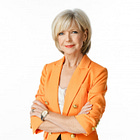Heather Hiscox on the Power of Place, Her Love of Canada & What Comes Next
After more than 40 years on air, CBC’s Heather Hiscox returns to her roots, sharing reflections on community, curiosity, and what she hopes comes next for her — and for local media in Canada.
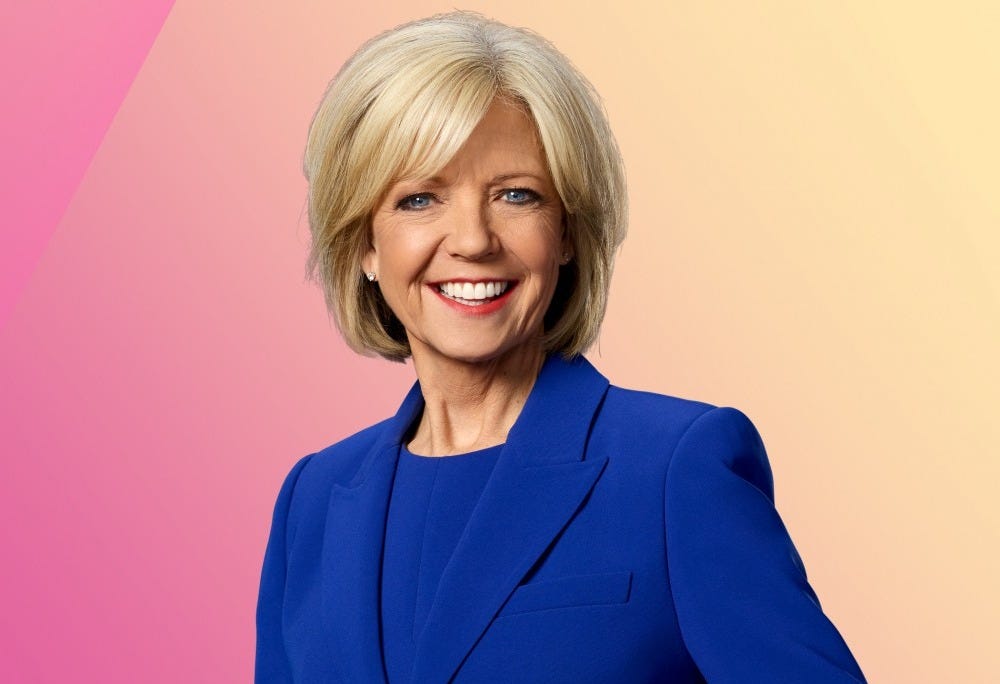
After more than four decades on air, longtime CBC News host Heather Hiscox says she’s not slowing down, and she isn’t done telling stories… she’s just changing how she tells them.
In an exclusive interview with The Owen Sound Current, the veteran broadcaster reflected on her next chapter — one that continues to centre on community, travel, and a deep love of Canada. This is the second piece in our series.
Related:
Hiscox, who began her broadcasting career at CFOS Radio as a teen in Owen Sound, returned home this week as part of her Morning Live Across Canada farewell tour. The event outside City Hall drew a hometown crowd eager to celebrate both her national career and her local roots.
“I have been so lucky to do this work,” she said. “People keep asking if I’m ready to stop, but I’m not stopping. I’m just taking my curiosity in a new direction. I still believe in the power of storytelling to connect us… in our communities, and across the country.”
A Life Shaped by Curiosity and Place
Throughout her career in journalism, Hiscox has lived and reported in nearly every region of Canada — from the harbours of Halifax to the streets of Montreal, the newsrooms of Hamilton and London, and the studios of Toronto. Wherever she went, she carried the same purpose: helping Canadians make sense of their world each morning.
Her curiosity about the people and places that make up this country has been a defining thread through her work. Even after decades spent covering the nation, there are still places she yearns to experience; landscapes and communities that have shaped Canada’s identity but that she’s encountered only through others’ stories. Nunavut, she says, is high on that list.
Asked about her favourite places — and where she imagines the next chapter of her life might unfold — Hiscox pauses, reflecting on the places that have felt most like home.
“Every place I’ve worked has taught me something different about Canada,” she said. “It’s one thing to visit a place; it’s another to live there, to understand its rhythm and its people.”
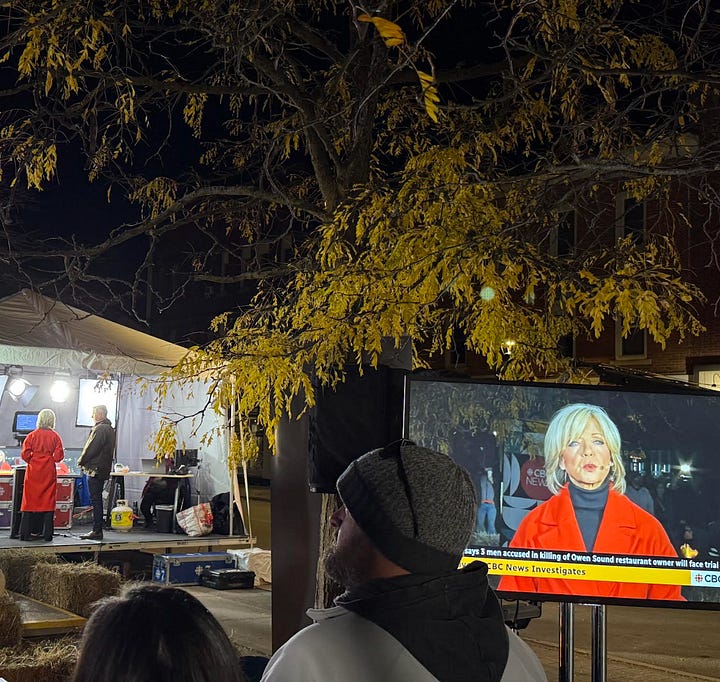
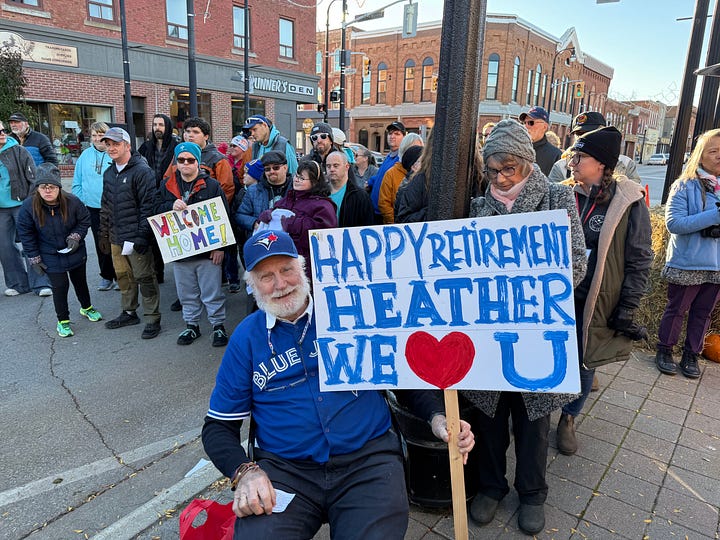
She adds that one of those places still holds a special pull. “Had I not married a man from London, Ontario, I might very well still be in Quebec,” she said. “I loved living in Montreal, living biculturally, bilingually… it’s such an extra richness I really appreciated.”
For Hiscox, geography isn’t just about location; it’s about perspective. It’s the texture of snow on the Prairies during a blizzard report, the cadence of fishermen in a Maritime harbour, the quiet resilience of a northern town rebuilding after tragedy. Each story, she says, offers a glimpse of how Canadians see themselves and one another.
That lifelong fascination with place is something Hiscox plans to explore even more deeply through her ongoing involvement with the Royal Canadian Geographical Society, where she is a Fellow.
“The Society’s motto is to tell the story of Canada to Canadians and to the world,” Hiscox said. “That’s exactly what I’ve tried to do my whole career. I’m looking forward to finding new ways to keep doing that… maybe through travel, writing, or projects that help Canadians better understand this incredible country we live in.”
As she looks ahead, Hiscox says she hopes to spend more time on the ground exploring new regions, revisiting old ones, and listening to the voices that make each place unique. “There’s still so much to see, so many stories to hear,” she said. “The more I travel, the more I realize how extraordinary this country really is.”
Finding Stories in Every Corner of the Country
Hiscox’s farewell tour with Morning Live Across Canada included stops in communities such as Steinbach, Manitoba; Lloydminster, Alberta/Saskatchewan; and Hudson, Quebec, each one a reflection of CBC’s renewed effort to rebuild its local roots.
Her tour coincided with CBC’s largest local expansion in more than a decade. It’s a national initiative that adds up to 30 new journalists to 22 underserved communities across Canada, and those were among the first to host these new community “pop-up bureaus.”
New reporting posts have been established everywhere from the Fraser Valley and Fort St. John in British Columbia to Prince Albert, Saskatchewan; Steinbach, Manitoba; Sault Ste. Marie, Ontario; and northern New Brunswick. The goal, CBC says, is to ensure that more Canadians have access to trusted, local coverage about their communities and the wider world.
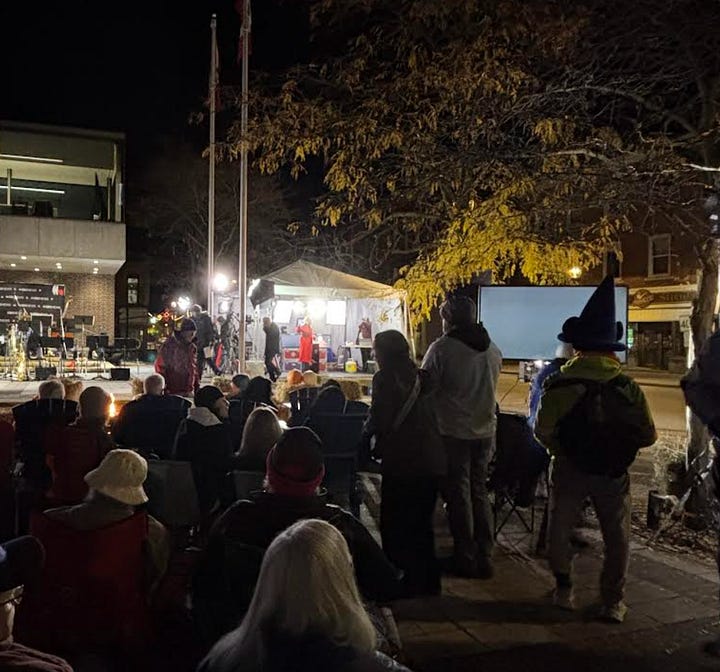
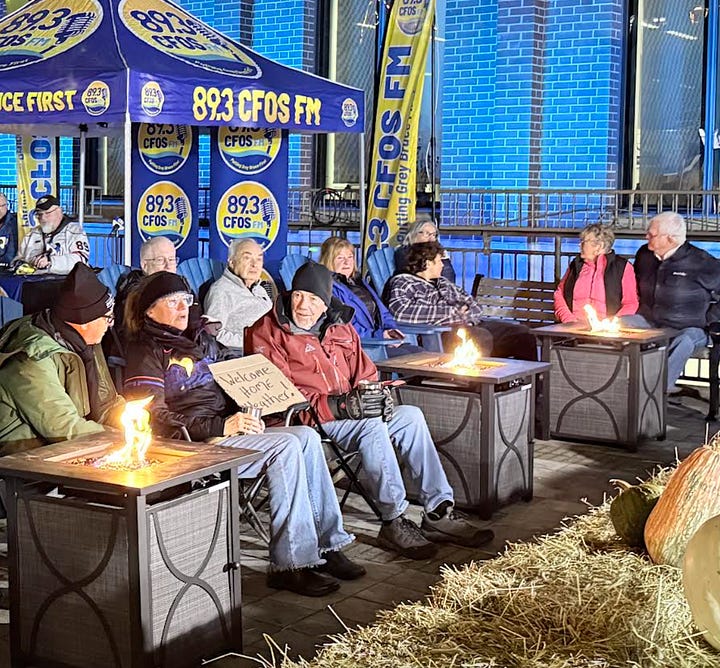
For Hiscox, the initiative echoes the early days of her own career, when local stations like CFOS served as both a training ground and a lifeline for community storytelling.
“When you’re in a place — when you know the streets, when you talk to people face-to-face — the stories you tell are different,” she said. “They’re more human, more connected. That’s what these bureaus are trying to bring back.”
Hiscox said she sees media investments in local coverage as essential to rebuilding that sense of connection.
“These are the ties that bind. These are what create cohesion in a community and overcome differences and divisions,” she said. “And we’re just seeing so many divisions play out. I think that a lack of a unifying voice, like a local news source, is contributing to that.”
We’re losing the everyday stories that hold communities together, Hiscox lamented. “Who won the high school football game, what’s being built downtown, who got married, who passed away… those are the things that make people feel like they belong,” she added.
After her final broadcast, Hiscox hopes to continue mentoring the journalists now staffing these local bureaus. “I want to spend time in those newsrooms, working with the reporters who are just starting out,” she said. “I’ve learned so much over the years — about interviewing, about listening, about what it means to serve an audience. If I can share any of that, I’ll be grateful.”
She sees mentorship not as a farewell, but as a continuation. “When I was young, I had people who took the time to teach me — at CFOS, at every newsroom I joined,” she said. “Now, it’s my turn to give that back. These young journalists are the future of storytelling in this country, and they need to feel supported.”
Continuing to Tell Canada’s Stories
Though her time behind the anchor desk is coming to an end, Hiscox says her passion for Canadian storytelling remains as strong as ever. “The more I see, the more I realize how extraordinary Canada is — not just in its landscapes, but in its people. That curiosity is what keeps me going,” she said.
Retirement, she added, will give her the freedom to explore new ways to share and to continue championing the country she’s always been proud to serve.
“I’ve never wanted to live or work anywhere else,” she said. “Everything I’ve ever needed as a journalist — challenge, purpose, beauty — I’ve found here in Canada.”
For four decades, Heather Hiscox has helped Canadians better understand their country and one another. As she turns the page to a new chapter, she remains who she has always been: a passionate advocate for Canadian stories, and for the people who tell them.



